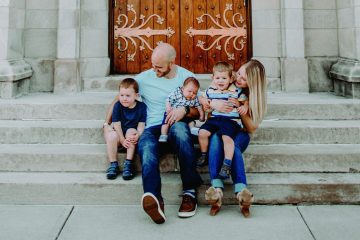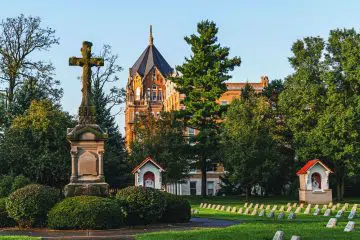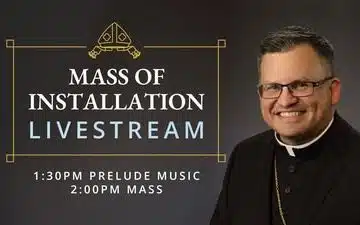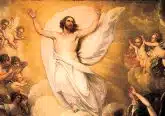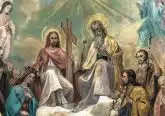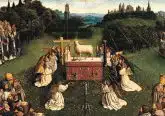“Eschatological” Man – Part Two

Note: This article is part of an ongoing series on Pope St. John Paul II’s “Theology of the Body” (TOB).
Last month, we began exploring Pope St. John Paul II’s reflections on “eschatological” man, which completed his threefold meditation on the human person in TOB. We saw that the term “eschatological” refers to the “last things”: death, judgment, heaven, hell, purgatory, the resurrection of the body and the new creation. Pope St. John Paul II sought to explore what these final realities mean for our understanding of the human person– especially the human body–marriage and sexuality.
Central to these reflections by the late pope is the resurrection of the body. As he did with his reflections on “original man” and “historical man,” he takes as his starting point the words of Christ in the gospels about bodily resurrection (Mt. 22, Mk. 12, Lk. 20). In the three synoptic gospels, Jesus defends the reality of bodily resurrection in the face of challenges from the Sadducees, saying that “the Lord the God of Abraham and the God of Isaac and the God of Jacob … is not God of the dead, but of the living; for all live to him” (Lk. 20:37-38). Jesus rebuked the Sadducees who did not believe in the resurrection of the body, saying, “You are wrong, because you know neither the Scriptures nor the power of God” (Mt. 22:29).
In addition, Pope St. John Paul II wrote that Christ, who said, “I am the Resurrection and the life” (Jn. 11:25) gave the most definitive “answer to this question by his own resurrection” (TOB 65:4). Indeed, St. Paul also links Christ’s resurrection with our own, describing Him as “the first fruits of those who have fallen asleep” and asserting that since “in Adam all die, so also in Christ shall all be made alive” (1 Cor. 15:20, 22). Elsewhere, St. Paul tells us, “If the Spirit of him who raised Jesus from the dead dwells in you, he who raised Christ Jesus from the dead will give life to your mortal bodies also through this Spirit who dwells in you” (Rom. 8:11).
Indeed, Scripture and Church teaching clearly affirm that at the end of time there will be a bodily resurrection. However, it is important to point out that this resurrection does not mean a mere reawakening or resuscitation of our earthly bodies but rather a renewal or transformation of them. Christ’s resurrection shows us that it is the same body that dies that is raised, but it goes through a miraculous change such that it takes on new, splendid properties and is immune from sickness and death. St. Paul describes it like this: “For the trumpet will sound, and the dead will be raised imperishable, and we shall be changed. For this perishable nature must put on the imperishable, and this mortal nature must put on immortality” (1 Cor. 15:52b-53).
Pope St. John Paul II elaborated on this idea by saying, “The Resurrection … means not only the recovery of bodiliness and the reestablishment of human life in its integrity, through the union of body and soul, but also a wholly new state of human life itself. We find the confirmation of this new state of the body in Christ’s resurrection” (TOB 66:3, emphasis added).
In the gospels, Jesus says that in the resurrection we will be “like angels in heaven” (Mt. 22:30, Mk. 12:25) or, as St. Luke puts it, “equal to angels” and “sons of God, being sons of the resurrection” (Lk. 20:36). This does NOT mean that we become angels after we die or at the end of time any more than cats become dogs or rocks become trees. To become an angel would mean that we cease to be human and take on an entirely different nature. Rather, our Lord is describing how our bodies will be endowed with new spiritual properties, and our life in the new creation will be different in important ways from our present, earthly life. Some of those key differences have to do with sex and marriage. With the help of Pope St. John Paul II, we will continue to explore the key features of resurrected life and their implications for us now.
 Dr. Andrew Sodergren is a Catholic psychologist and director of psychological services for Ruah Woods. He speaks on the integration of psychology and the Catholic faith. He and his wife, Ellie, have five children.
Dr. Andrew Sodergren is a Catholic psychologist and director of psychological services for Ruah Woods. He speaks on the integration of psychology and the Catholic faith. He and his wife, Ellie, have five children.
This article appeared in the November 2024 edition of The Catholic Telegraph Magazine. For your complimentary subscription, click here.




